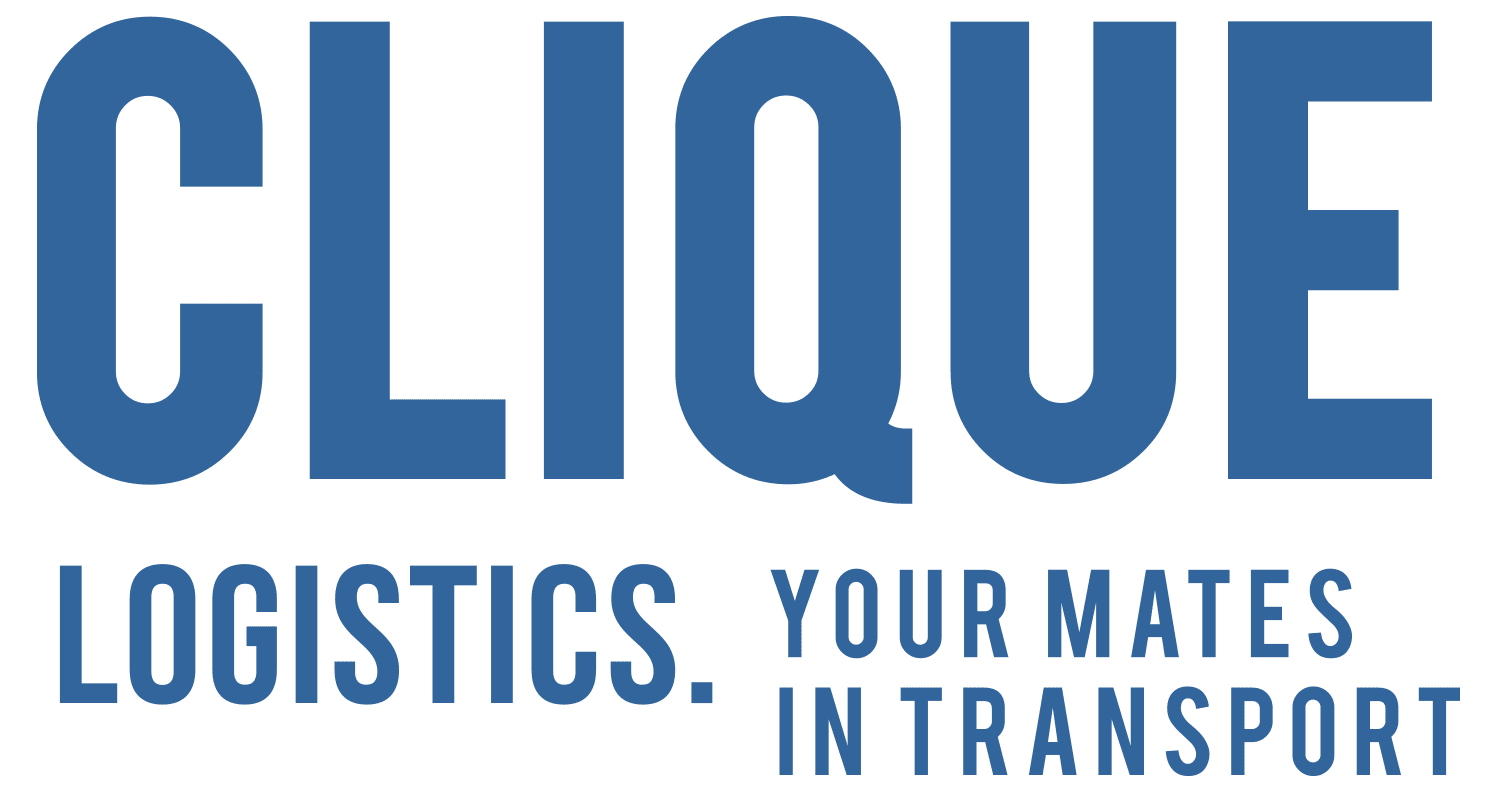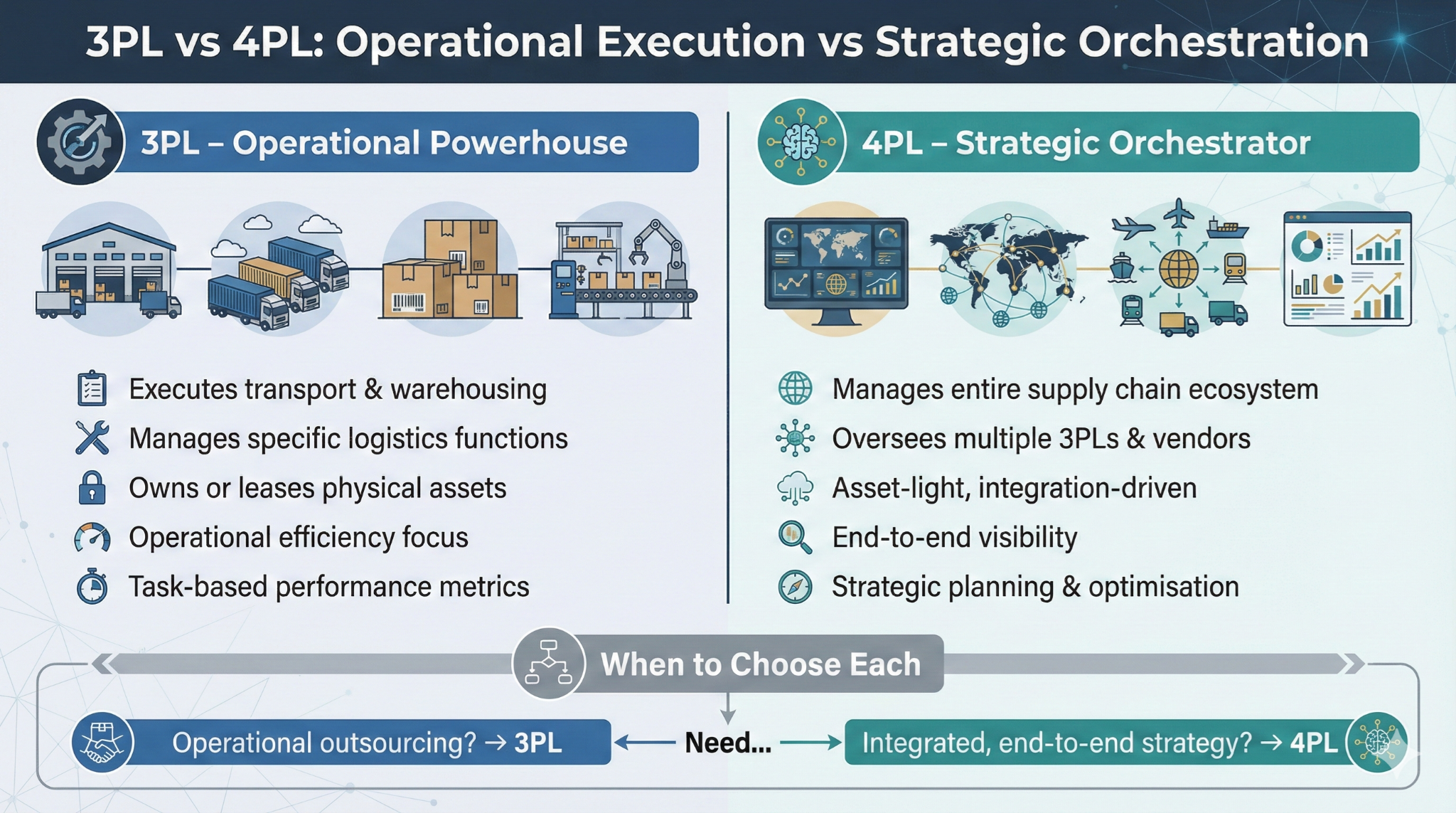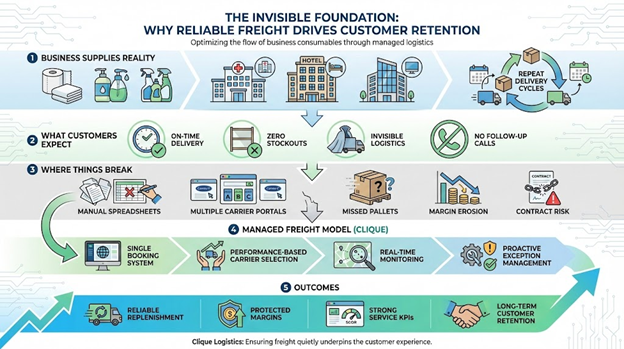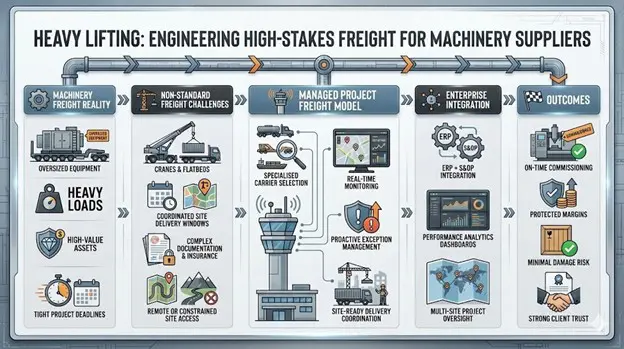You might not realise that international freight forwarding is more than just shipping goods—it’s a complex orchestration of logistics and regulations. It involves manoeuvring customs, optimising routes, and managing documentation, all while adapting to market changes. With the demand for efficient supply chains rising, understanding the subtleties of freight forwarding could significantly impact your business’s global reach and profitability. What strategies are crucial for success in this intricate field?
Key Components of Freight Forwarding
When you’re traversing the world of freight forwarding, understanding the key components is vital.
Global logistics management, customs clearance, and shipment management are critical elements that can impact your shipping experience.
Global Logistics Management
Effective global logistics management is vital for successful freight forwarding, as it coordinates the seamless transport of goods from manufacturers to distribution points.
You’ll find that key components include documentation handling and negotiations with carriers to optimise routes based on cost, speed, and reliability. By leveraging a network of freight carriers and partners, you can improve the efficiency of your supply chain.
Utilising logistics technology, such as tracking systems and electronic documentation, maintains visibility and compliance throughout the shipping process.
Moreover, intermodal transport networks allow you to combine various transport modes, reducing costs while ensuring timely delivery.
With these strategies in place, you’ll navigate the complexities of international trade more effectively.
Customs Clearance
Customs clearance plays a pivotal role in freight forwarding, ensuring your shipments comply with local regulations while facilitating smooth transit across borders.
You’ll rely on in-house licensed brokers who possess extensive customs knowledge to manage the clearance processes efficiently and accurately. They utilise an EDI link with Australian Customs for fast, paperless electronic processing, streamlining everything for you.
To keep up with the ever-changing customs regulations, brokers receive daily updates, ensuring compliance and minimising delays. Their services, including tariff classification, duty drawback, and import permit advice, are vital for managing your customs obligations and costs effectively.
Shipment Management
Shipment management is the backbone of freight forwarding, guaranteeing goods move seamlessly from manufacturers to their final destinations. It involves coordinating transport, managing documentation accuracy, and securing compliance with both domestic and international regulations.
As you oversee this process, you’ll handle customs clearance and negotiate with carriers to secure the best routes and pricing based on speed and reliability.
Utilising advanced technology systems for shipment tracking is fundamental, allowing you to monitor cargo in real-time and keep all stakeholders informed. This visibility not only improves efficiency but also builds trust with clients.
Freight Services Offered
When it comes to international freight forwarding, you’ll find a range of services tailored to your needs.
Whether you need air freight for urgent shipments, sea freight for large cargo, or land transportation for local deliveries, there’s a solution for you.
Plus, time-sensitive deliveries guarantee your goods arrive exactly when you need them.
Air Freight
As you investigate air freight options, you’ll find that PACK & SEND provides a robust network of air freight carriers, ensuring your urgent shipments reach over 200 destinations worldwide quickly.
Their solutions emphasise air freight optimisation, allowing for flexible scheduling that accommodates your timelines and improves service responsiveness.
With extensive tracking available, you can monitor your cargo in real-time, ensuring peace of mind throughout the shipping process.
The team is well-versed in air freight regulations, so you can trust them to navigate complexities seamlessly.
Whether you’re shipping oversized or specialised items, their expertise guarantees efficient handling of all your shipping needs.
With 40% of their staff boasting over ten years of experience, you’ll receive knowledgeable support every step of the way.
Sea Freight
Sea freight services play a vital role in international trade, offering efficient solutions for transporting goods across oceans. You can choose between Full Container Load (FCL) and Less than Container Load (LCL) shipments, catering to various cargo sizes.
One of the sea freight advantages is the competitive pricing enabled by IFC’s strong partnerships with major shipping lines. While sea freight is cost-effective, it likewise presents sea freight challenges, such as longer transit times compared to air freight.
Nonetheless, IFC’s expertise in customs compliance guarantees smooth customs clearance, minimising delays. Plus, their extensive tracking capabilities allow you to monitor your cargo throughout the shipping process, providing peace of mind and enhancing your logistics experience.
Land Transportation
Land transportation plays a vital role in international freight forwarding, ensuring goods move efficiently via trucks, rail, and other ground methods to meet tight delivery schedules.
You can choose from various freight services, including Full Truckload (FTL) and Less than Truckload (LTL), depending on your shipment size.
Effective route optimisation is significant, as it reduces transit times and shipping costs, enhancing your logistics strategy.
Many freight forwarders utilise intermodal transportation, combining different ground modes, which adds flexibility and efficiency to cargo delivery.
It’s important to comply with local regulations and customs procedures, ensuring smooth cross-border shipments and adherence to legal requirements.
With these services, you can streamline your supply chain and maintain timely deliveries.
Time-sensitive Deliveries
Time-sensitive deliveries are critical in today’s fast-paced global market, where every hour counts. To meet tight deadlines, you’ll benefit from implementing urgent shipment strategies that utilise air freight advantages.
Air freight solutions facilitate quick delivery options, accommodating urgent shipments efficiently. With around 98% of air freight checked in within 7 hours of arrival, you can count on rapid processing and timely dispatch.
The vast global network of air freight carriers offers flexible scheduling, perfect for critical shipments that require immediate attention. Furthermore, thorough tracking capabilities allow you to monitor your cargo in real-time, ensuring visibility and reliability throughout the delivery process.
Tailored logistics solutions, including expedited customs clearance, further reduce delays, enhancing your overall shipping experience.
Customisation and Flexibility in Services
When it comes to international freight forwarding, you want options that fit your unique needs.
Flexible pickup schedules and personalised client solutions guarantee your shipments align with your timeline and budget.
Plus, thorough customs consultancy makes traversing regulations a breeze, so you can focus on your business.
Flexible Pickup Options
In today’s fast-paced business environment, having flexible pickup options can significantly boost your shipping efficiency.
With advanced pickup technology, you can customise your pickup schedules based on your specific requirements and timelines. Many freight forwarders offer same-day or next-day pickups, ensuring urgent shipments reach their destinations on time.
You’ll appreciate the convenience of choosing from various pickup locations, whether it’s your warehouse, manufacturing facility, or retail store. This level of client collaboration allows dedicated account managers to work closely with you, tailoring pickup solutions that align with your supply chain operations and business goals.
Comprehensive Customs Consultancy
Flexible pickup options are just one part of the logistics puzzle. When it comes to customs consultancy, you need a partner who understands the intricacies of regulatory compliance.
IFC’s in-house licensed brokers offer expert advice tailored to your specific industry, guaranteeing a smooth clearance process. With their extensive knowledge, they provide customised solutions for duty management and tariff classification, helping you navigate complex regulations effortlessly.
By utilising an EDI link with Australian Customs, IFC enables fast, paperless electronic entries for your shipments, streamlining customs clearance. Plus, you’ll receive daily updates on industry changes, allowing you to proactively adjust your compliance strategies.
Their detailed landed costing service guarantees you know all costs associated with your shipments before delivery, enhancing your planning.
Personalised Client Solutions
Finding the right freight forwarding solution can feel overwhelming, but personalised client solutions can make all the difference.
At PACK & SEND, you’ll benefit from tailored solutions that cater to your unique needs. With over 30 years of experience, their dedicated account managers guarantee client engagement through hands-on support for every shipment.
You’ll enjoy comprehensive visibility via the interactive digital freight portal, allowing real-time tracking and updates. Their customised offerings adapt to various shipping requirements, whether you’re handling oversized equipment or specialised cargo.
Plus, the flexibility in service options, including diverse transportation modes and scheduling, lets you optimise your logistics strategy based on cost, speed, and reliability.
Accept a solution that works for you.
Optimising Supply Chain Management
When optimising supply chain management, you’ll want to focus on cost-saving strategies, time efficiency techniques, and effective risk management approaches.
These elements not only streamline operations but also improve overall service quality.
Cost Savings Strategies
To optimise your supply chain management and achieve cost savings in international freight forwarding, you should focus on several key strategies.
Start with a thorough cost analysis of your shipments, paying attention to dimensions and weights to take advantage of dimensional weight pricing.
Implement intermodal transport solutions to utilise different transportation modes, which can help you reduce overall expenses.
Build strong partnerships with freight carriers to negotiate competitive pricing strategies that lower transportation costs.
Regularly review and update your customs compliance practices to avoid costly delays and fines.
Finally, consider extensive insurance options to protect against loss or damage, minimising financial risks and enhancing your overall supply chain efficiency.
Time Efficiency Techniques
Cost savings in international freight forwarding often go hand in hand with improving time efficiency.
By implementing a digital freight portal, you can improve order processing, allowing for 98.2% of orders to be tracked within two hours of receipt. This significantly boosts response times in your supply chain.
Utilising intermodal transport networks streamlines the transportation scheduling process, reducing delays and optimising delivery times.
Collaborating with experienced freight forwarders can likewise lead to a 97.7% customs clearance rate achieved five days before the estimated time of arrival for sea freight.
Plus, proactive communication increases the chances of meeting tight deadlines, with 98% of air freight checked in within seven hours of arrival, ensuring timely deliveries every time.
Risk Management Approaches
Effective risk management in international freight forwarding is vital for maintaining smooth supply chain operations, especially since disruptions can arise unexpectedly. You need to conduct thorough risk assessments to identify potential issues like customs delays or transport setbacks.
Once you pinpoint these risks, implementing effective mitigation strategies is critical. Consider utilising extensive insurance options to minimise financial losses from cargo damage or loss during transit.
Accept technology-driven solutions, such as real-time tracking systems, to improve visibility and respond swiftly to emerging risks. Building relationships with experienced customs brokers and reliable transport providers can help you navigate complex regulations and optimise delivery times, ultimately ensuring that your supply chain remains resilient and efficient in the face of uncertainty.
Environmental Sustainability in Freight Forwarding
In today’s freight forwarding environment, you’re likely aware of the pressing need for carbon offset initiatives to reduce ecological impact.
By adopting sustainable logistics practices, you can’t only meet your corporate social responsibility goals but likewise stay ahead of future trends.
Embracing these strategies will position your business as a leader in eco-conscious operations.
Carbon Offset Initiatives
As the freight industry grapples with its significant contribution to global greenhouse gas emissions, many companies are turning to carbon offset initiatives to promote environmental sustainability.
By partnering with organisations like Tasman Environmental Markets, you can participate in programs that support emission-reduction targets, effectively integrating sustainability into your logistics. These initiatives often involve purchasing carbon credits, which can offset the emissions generated by your operations.
Through emission trading, you can contribute to broader environmental efforts while maintaining efficient logistics. Adopting these strategies demonstrates your commitment to responsible business practices and helps position your company as a leader in sustainable freight forwarding.
With minimal extra steps for clients, you can improve your brand’s reputation and environmental stewardship.
Reducing Ecological Impact
While the freight industry plays a significant role in global trade, it similarly faces increasing pressure to reduce its ecological impact. You can contribute to this effort by adopting sustainable packaging materials that minimise waste and improve recyclability.
Implementing eco-friendly logistics practices will additionally make a difference; consider optimising delivery routes and utilising intermodal transport to cut down on fuel consumption and greenhouse gas emissions.
Partnering with organisations like Tasman Environmental Markets can help you integrate carbon offset initiatives seamlessly into your operations. These steps not only align with emission-reduction targets but also set a standard for environmental responsibility in the industry.
Future Trends in Sustainable Logistics
Sustainability isn’t just a trend; it’s becoming the backbone of logistics in the freight forwarding industry. As you navigate the complexities of international trade, it’s crucial to adopt sustainable technologies and eco-friendly practices.
With the freight sector contributing over 10% to global greenhouse gas emissions, adopting greener solutions is vital. You’ll see more partnerships with organisations like Tasman Environmental Markets to implement carbon offset programs, supporting your sustainability goals.
Increasing regulatory pressures and consumer demands push you toward fuel-efficient transportation and renewable energy sources. Furthermore, innovative logistics solutions, such as intermodal transport, optimise delivery routes and reduce carbon footprints.
Real-time tracking and data analytics will improve transparency, allowing for better decision-making in your sustainable shipping practices.
Conclusion
In the constantly changing world of international freight forwarding, you’re not just moving goods; you’re weaving together a tapestry of global trade. By embracing technology and prioritising sustainability, you can navigate the complexities of logistics with ease. Remember, each shipment you handle is a vital thread in the fabric of commerce, connecting people and businesses across borders. So, as you optimise your processes, envision the impact you’re making on the world stage, one shipment at a time.




